 Petzlover
Petzlover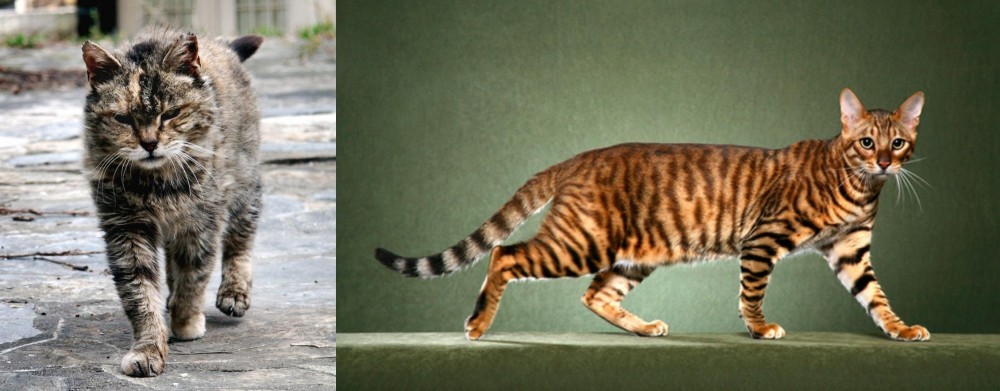 Both Farm Cat and Toyger are originated from United States. Both Farm Cat and Toyger are having almost same weight. Farm Cat may live 5 years more than Toyger. Both Farm Cat and Toyger has same litter size. Both Farm Cat and Toyger requires Moderate Maintenance.
Both Farm Cat and Toyger are originated from United States. Both Farm Cat and Toyger are having almost same weight. Farm Cat may live 5 years more than Toyger. Both Farm Cat and Toyger has same litter size. Both Farm Cat and Toyger requires Moderate Maintenance.
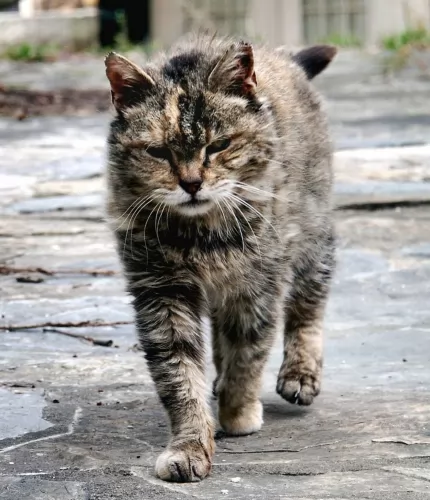 Known also as the Barn Cat, this domestic cat is of a mixed breed. The very name ‘farm cat’ is referring to a general kind of cat that lives in an almost wild state on farms and agricultural properties.
Known also as the Barn Cat, this domestic cat is of a mixed breed. The very name ‘farm cat’ is referring to a general kind of cat that lives in an almost wild state on farms and agricultural properties.
Possibly, their role in keeping rodents at bay was how they came about – domesticated to keep rodents away from grain crops.
When you do research you find that there is archeological evidence to suggests that these farm cats have been around since about 7500 BC. Most barn cats fall under the domestic shorthair or domestic longhair categories.
These cats live in a variety of conditions and some of them get their food solely from the rodents they catch. Others are tame with access to supplemental cat food as well as veterinary care.
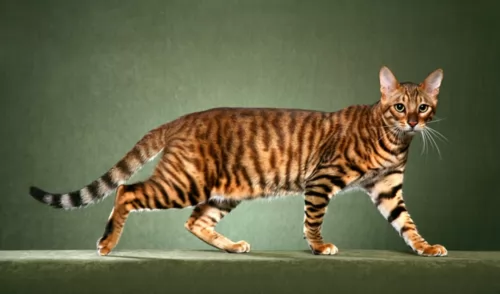 The Toyger is a domestic cat developed from breeding Shorthaired Tabbies to look like a small Tiger.
The Toyger is a domestic cat developed from breeding Shorthaired Tabbies to look like a small Tiger.
It has the striped coat of the Tiger. The person to develop the Toyger is Judy Sugden.
The unusual-looking cat has been recognized for registration by the International Cat Association in the 1990s. It was accepted as a full championship breed in 2007.
Today this designer cat is recognized by the ICA but not the Cat Fancier's Association.
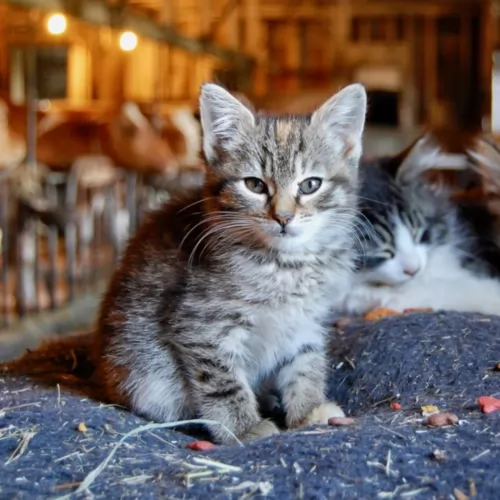 Farms cats are also members of domestic cats but it’s just that they are usually not socialized and they run away from people.
Farms cats are also members of domestic cats but it’s just that they are usually not socialized and they run away from people.
Farm cats have different histories and there is really no one-size-fits-all description of them.
They can weigh anything from 2 to 8kg. They can live to be anything between 10 and 20 years of age. Some of them are large, some small, some are solid colored while others are bi-colored and patterned. Their coats differ too and you can find short- and long-haired varieties among your farm cats
Their eyes and ears will also be in any shades and sizes and these cats are usually not spayed or neutered and can produce kittens that nobody is sure how they’ll turn out.
If you were to stumble across a farm cat born of unknown parents, there is no knowing what the small feline will behave like. Socialization and lifestyle play a big role in determining how a kitten will turn out but farm cats left to their own devices could be quiet, aggressive, loving, naughty, reticent, reserved, playful, lazy, shy or nervous.
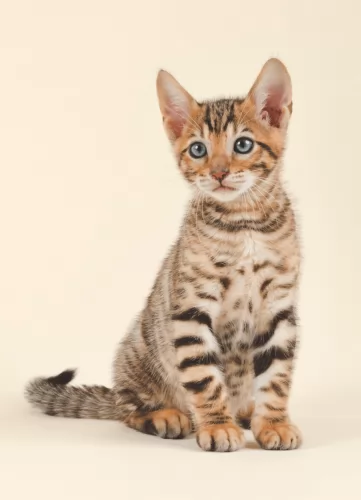 The Toyger is a medium to large-sized cat that can weigh between 5 and 9kg. As with any cat, with these newer kinds of cats, the size of the cat can vary.
The Toyger is a medium to large-sized cat that can weigh between 5 and 9kg. As with any cat, with these newer kinds of cats, the size of the cat can vary.
It is a shorthair cat that is quite a bit bigger than your regular cat. The coat of this mixed breed cat has markings similar to that of a tiger - vertical orange striping with rosettes.
The coat of the cat is short and he is a brown mackerel tabby with stripes being a dark brown to black. The eyes of the cat can be a blue, aquamarine, green, or gold.
These cats have a laid back disposition, and will comfortably slot into a busy household.
They are playful and intelligent and can be taught tricks and to walk on the lead.
This cat enjoys the company of people and will get on well with other pets too. People who have owned them say they are the most affectionate and loving cats there are and will enjoy being petted and pampered by their human family.
They get on well in busy households where there are children and other pets. They’re super smart and can be trained with ease.
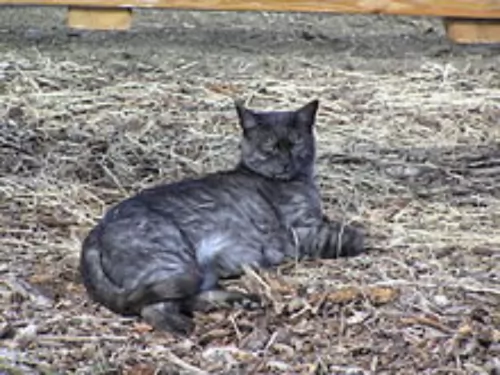 Farm cats are such wonderful animals – they just need a good chance in life like other domestic cats.
Farm cats are such wonderful animals – they just need a good chance in life like other domestic cats.
Many of them have had a hard life and it can be marvelous to open your home and heart to one or two of them and see the pleasure they bring.
They’re full of character and if you provide them with good food and a warm bed and promise to love them, you’ll no doubt be starting a solid and meaningful friendship that can enhance your life.
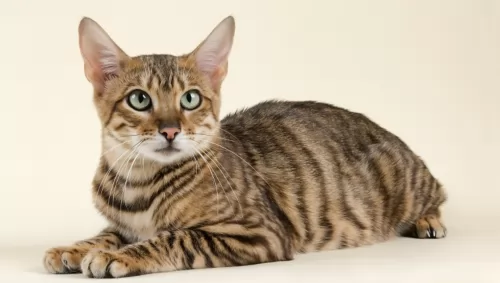 Toygers are expensive cats and there aren’t many breeders in the world. If you do decide to invest in a Toyger, he will need careful looking after, after all, you've spent a lot of money on him.
Toygers are expensive cats and there aren’t many breeders in the world. If you do decide to invest in a Toyger, he will need careful looking after, after all, you've spent a lot of money on him.
Diet is of absolute importance to keep such a cat healthy. The right environment is also important as cats and dogs for that matter too, can become ill and depressed if they find themselves in homes where they are unloved and abused.
Don't get a cat if you aren't prepared to love and care for him. Because the question is then 'why get a cat?'
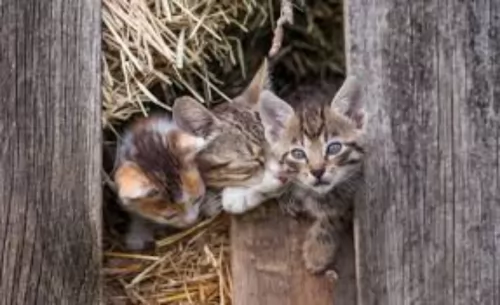 Farm cats left to fend for themselves can suffer from a host of illnesses. Eye infections are one. The cause of these eye infections is usually a virus, of which herpes, chlamydia, and Calicivirus are the most common.
Farm cats left to fend for themselves can suffer from a host of illnesses. Eye infections are one. The cause of these eye infections is usually a virus, of which herpes, chlamydia, and Calicivirus are the most common.
Your vet will certainly prescribe you some antibiotics for your kitten to help against secondary infections.
Check your farm kitten over as he is likely to have a nose full of snot as well and may even be sneezing. Take the kitten to the vet who can give him a good once-over and put him on the road to recovery.
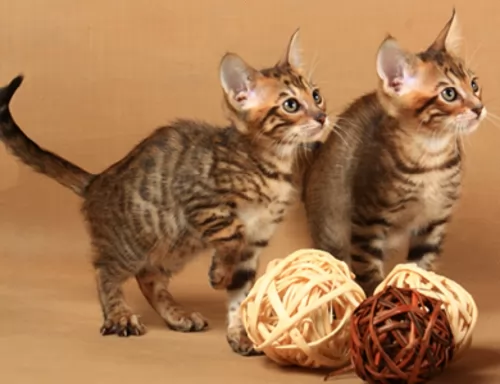 Just like in human beings, obesity can reduce the lifespan of your cat. Make sure you keep your Toyger’s weight under control.
Just like in human beings, obesity can reduce the lifespan of your cat. Make sure you keep your Toyger’s weight under control.
These cats are considered to be fairly healthy. He can be predisposed to some of the same cat conditions that the Bengal and Domestic Shorthair face.
When your Toyger shows any signs of illness, get him to the vet. Some of the common health problems your Toygers might have to contend with include obesity and heart murmurs.
A heart murmur is an abnormal heart sound, and is caused by turbulent blood flow within the heart. When you vet examines your cat, a heart murmur is detected when the vet listens to your cat's heart with a stethoscope. The vet will discuss with you the way forward for your cat.
If you get a Toyger kitten, you will have to make sure he is up to date with his vaccinations. This is part of being a responsible cat owner.
The breeder will have a record of his vaccinations and will hand this over to you.
At 6 – 8 weeks kittens start with their first injections which include vaccinations for distemper, feline rhinotracheitis, and feline calici virus.
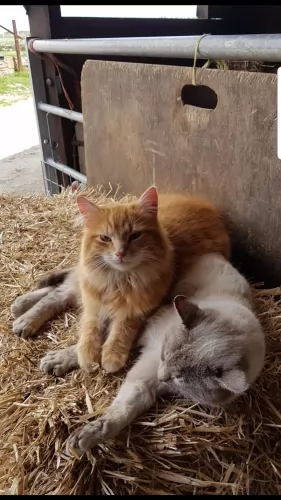 Barn cats or farm cats are not likely to have been neutered or spayed and they are just adding to the overpopulation of farm cats that can become feral cats.
Barn cats or farm cats are not likely to have been neutered or spayed and they are just adding to the overpopulation of farm cats that can become feral cats.
The average fertile cat can produce three litters every year, and with as many as 6 kittens in a litter, you can imagine how a small colony of cats can get out of control.
Sometimes cat rescue programs do a steri-drive and spay and neuter cats like this to curb the numbers. Of course, spaying and neutering can prevent many diseases as well.
If you have farm cats that have been spayed or neutered, provide them with good food and water. You can put out wet, canned cat food or dry kibble – they’ll be so pleased as most times these cats don’t even know where their next meal will come from.
You see them drinking out of puddles of water. Unfortunately, these pools are often filled with contaminants and this can also make the cats sick.
Every cat just wants a soft, warm place to sleep, and if you can, provide some warm dry hay for these farm cats. Even a cardboard box can be a haven for a cat that has never known a bed.
If you have managed to catch a farm cat kitten and you want to offer it a home, make sure to start off with veterinary care and vaccines.
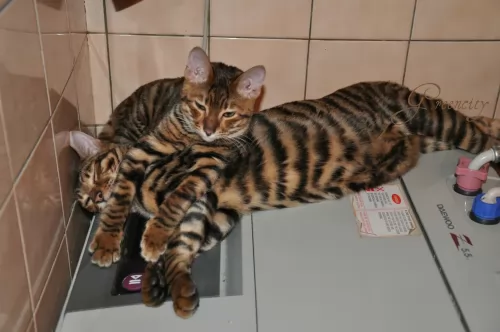 Toygers should be brushed weekly and have their nails trimmed regularly. As with all domesticated cats, you should check inside his ears to make sure they don’t become clogged with dirt and wax.
Toygers should be brushed weekly and have their nails trimmed regularly. As with all domesticated cats, you should check inside his ears to make sure they don’t become clogged with dirt and wax.
These are smart cats so they will need to be provided with attention in the form of clever games and toys that get him thinking.
Toygers need to be fed much like any other domestic cat. The most important thing to remember when feeding a cat is that they are carnivores and they require meaty food high in protein.
Speak to your vet about the absolute necessity of getting your cat’s diet right. For your convenience, cat food manufacturers have brought out many excellent cat foods that cater to the time of life your cat is in.